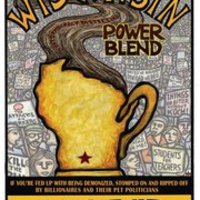Papers by Miwa Aoki Takeuchi

Within cultural-historical learning theories, recent research has focused on the practice-linked ... more Within cultural-historical learning theories, recent research has focused on the practice-linked (i.e., contextual) nature of identity. In this paper, we argue that while the concept of practice-linked identities represents a significant advance, this understanding of identity is limited because it cannot account for broad systemic issues of power and privilege. We integrate insights from Critical Race Theory and Queer Theory to develop a more nuanced understanding of identity development. In recent years, learning scientists have begun to theorize the close connection between identity development and learning. Contemporary cultural-historical learning theories have replaced static conceptions of identity with a conception of identity as fluid, context-based, and linked to the practices in which people participate. (We use the term cultural-historical learning theories and the acronym, CHL, to refer to a broad set of theories, rooted in the work of Vygotsky (e.g., 1978), that consid...

Cognition and Instruction, 2020
This study critically examines how the geopolitical configuration of identities, through the medi... more This study critically examines how the geopolitical configuration of identities, through the medium of the institutionalized label of “English language learners,” can shape and constrain localized experiences for learners. An ethnographic video study was conducted in the context of a mathematics unit (“the transforming recess unit”) wherein learners conducted surveys, summarized data, and voiced the changes they hoped to see in the elementary school playground. Findings demonstrate both empowering and disempowering ways of mobilizing data and graphs, which are intertwined with multi-layered identities. Interactions in the classroom were nested in macro-level geopolitical configuration of identities that influenced labelled learners’ access to becoming “agents of change” who could voice their desired changes in school practices. Categorical and binary frameworks inscribed in mathematics curriculum served as a context for inheritance and reproduction of existing categories through student surveys and graphs. Implications are discussed toward disrupting and transforming taken-for-granted labelling and rigid institutionalized practices through which colonial representation of the Other (Said, 1978) can be co-constructed.

This ethnographic study examined students’ opportunities to learn in linguistically diverse mathe... more This ethnographic study examined students’ opportunities to learn in linguistically diverse mathematics classrooms in a Canadian elementary school. I specifically examined the contextual change of group work, which influenced opportunities to learn for newly arrived English language learners (ELLs). Based on analyses of video-recorded interactions, this study revealed a shift in these ELLs’ opportunities to learn from when they worked with teacher-assigned peers to when they worked with friends. In both settings, ELLs tended to be positioned as novices. However, when working with friends, they accessed a wider variety of work practices. In friend groups, ELLs were occasionally positioned as experts and had more opportunities to raise questions and offer ideas. In contrast, when working with teacher-assigned peers, ELLs tended to remain in the position of being helped. In some teacher-assigned groups, interactions were characterized as authoritative, and ELLs’ contributions and ideas were rejected or neglected without relevant justifications or mathematical authority established by their peers. The findings contribute to ongoing discussions
on group work and friendship in linguistically diverse classrooms.

This study examined immigrant parents' involvement in early years mathematics learning, focusing ... more This study examined immigrant parents' involvement in early years mathematics learning, focusing on learning of multiplication in in-and out-of-school settings. Ethnographic interviews and workshops were conducted in an urban city in Japan, to examine out-of-school practices of immigrant families. Drawing from sociocultural theory of learning and the concept of appropriation (Wertsch, 1998), the role of power and identity was examined in relation to children's appropriation of an informal multiplication method that was taught by their parents. An intergenerational analysis, between immigrant parents and their children, revealed heterogeneous perspectives towards appropriation. Immigrant parents in this study framed their involvement in their children's early years mathematics learning in relation to their positional identities and the pressures to conform to the mainstream practices of their host country. During their early years of schooling, students in this study were already aware of academic tracking in the school and were aware of what was believed to be legitimate in school mathematics learning. The significance of diversifying mathematics curriculum and pedagogy was discussed to affirm the knowledge and identities of immigrant students and families.

Http Dx Doi Org 10 1080 13670050 2014 978262, Nov 18, 2014
Family language practice can be significantly influenced by social, historical, and political con... more Family language practice can be significantly influenced by social, historical, and political contexts, especially in immigrant households where a society's minority languages are used. Set in a large city in Japan, this study examines how institutional power can affect Filipino mothers' language use at home. Drawing from the cultural historical activity theory, this study examines both individual and collective discourses. After conducting individual interviews, participants and I collectively engaged in workshops, the topics of which included child-parent communications at home, experiences of Japanese schools, and multilingual development. Interactions during the workshops revealed the characteristics of the collective discourse to mitigate the repercussion from the dominant ideology and indicated participants' heightened awareness toward a supportive parental community. The findings also highlight the paradoxical role of English for Filipino women in Japanese society. English served as a resource to empower these women, but its economic and political power also hindered them from using their first languages at home. This study highlights the institutional power affecting Filipino mothers' language use and suggests the significance of cultivating a supportive parental community.
Cjnse Rcjce, Jun 25, 2010

Guided by sociocultural theory and the theory of multiliteracies, learning is perceived as a shif... more Guided by sociocultural theory and the theory of multiliteracies, learning is perceived as a shifting participation in practices, which is mediated by multiple physical and symbolic tools. Drawing on the situated multiliteracies approach, which integrates these two theories, the purpose of this ethnographic research is to
examine English language learners’ (ELLs) participation in mathematics practices in an urban Canadian classroom. This study describes ELLs’ successful participation in classroom mathematics practices in relation to the context which
supported their participation. I highlight the teacher’s use of multiple languages and physical and symbolic tools, along with her affirmation of students’ identities as multimodal users. The finding from this study calls for broadening the definition
of language in content area classrooms and for embracing identities created through classroom interactions as an integral part of learning.
This study examines teacher learning from the perspective of cultural-historical activity theory,... more This study examines teacher learning from the perspective of cultural-historical activity theory, which emphasizes the creation of new environments and new artifacts. This study focuses on one elementary school teacher over the course of professional development sessions for equitable mathematics teaching. Within the professional development, the teacher created a student project that investigated linguistic diversity in the school community. Thematic analysis reveals that teacher discourse relating to teaching mathematics to English language learners (ELLs) changed after the implementation of the inquiry project. More specifically, the discourse shifted from focusing on ELLs’ barriers and challenges to highlighting what ELLs can do. This shift was coupled with a change in the classroom mathematics learning environment.
Her research interests include equity and identity in mathematics education, sociocultural theori... more Her research interests include equity and identity in mathematics education, sociocultural theories of learning, and teacher education for social justice.

Teacher learning related to the teaching of mathematics
in a culturally relevant and responsive w... more Teacher learning related to the teaching of mathematics
in a culturally relevant and responsive way was
investigated across various professional development
(PD) contexts. The research team examined which of
the PD ideas teachers took up and what contradictions
teachers faced across multiple PD contexts. This study
focused on four major PD efforts in which five teachers
participated during one year. Ethnographic methods of
participant observation, document collection, and
interviews were used, and three main ideas were
identified: (a) the importance of developing
awareness of students and their communities,
(b) teaching strategies to scaffold students’
development of mathematical proficiency, and
(c) strategies for structuring student-driven, inquirybased
learning for mathematics. A significant research
finding indicates that multiple contexts of professional
learning presented contradictory messages. Thus, the
teachers took up some ideas and left others behind, and
they sometimes took up ideas that served conflicting
goals of education. An outcome of this study indicates
that future studies of teacher PD should focus on the
teachers’ perspectives and on the role of individual PD
programs within the broader context of multiple
professional learning situations.
Canadian Journal of Science, Mathematics and Technology Education, 2010
This article focuses on the role of history in shaping learning interactions in a high school mat... more This article focuses on the role of history in shaping learning interactions in a high school mathematics class, in which we argue that students participate in two key activity systems: Learning mathematics and doing school. Within the context of these two activity systems, we highlight the nature of sociogenesis, the patterns of shift in communities as people build on one

Teaching in Higher …, Jan 1, 2007
In this paper, we shed light on the dynamic nature of ‘diversity’ in higher education from the pe... more In this paper, we shed light on the dynamic nature of ‘diversity’ in higher education from the perspectives of four Japanese women graduate students seeking possibilities through different ways of knowing. Using an autoethnographical methodology embedded in a dialogue format of zadankai, we examine the stereotypes of Japanese women that are activated both inside and outside of academic institutions. Stereotyping propagates racist, patriarchal and heterosexist norms. The examination of the mechanisms in which stereotyping silences Japanese women reveals the micro and macro politics of identity. Our collective dialogue demonstrates the processes in which silenced Japanese women graduate students reclaim their holistic agencies to peel the layers of superficial notions of diversity and address the creative and flexible nature of ‘difference’ and ‘diversity’ in knowledge production. We hope this paper will encourage minority groups amongst students, educators, and administrators to engage in various ways of knowing and address the issues of ‘diversity’ in higher education.









Uploads
Papers by Miwa Aoki Takeuchi
on group work and friendship in linguistically diverse classrooms.
examine English language learners’ (ELLs) participation in mathematics practices in an urban Canadian classroom. This study describes ELLs’ successful participation in classroom mathematics practices in relation to the context which
supported their participation. I highlight the teacher’s use of multiple languages and physical and symbolic tools, along with her affirmation of students’ identities as multimodal users. The finding from this study calls for broadening the definition
of language in content area classrooms and for embracing identities created through classroom interactions as an integral part of learning.
in a culturally relevant and responsive way was
investigated across various professional development
(PD) contexts. The research team examined which of
the PD ideas teachers took up and what contradictions
teachers faced across multiple PD contexts. This study
focused on four major PD efforts in which five teachers
participated during one year. Ethnographic methods of
participant observation, document collection, and
interviews were used, and three main ideas were
identified: (a) the importance of developing
awareness of students and their communities,
(b) teaching strategies to scaffold students’
development of mathematical proficiency, and
(c) strategies for structuring student-driven, inquirybased
learning for mathematics. A significant research
finding indicates that multiple contexts of professional
learning presented contradictory messages. Thus, the
teachers took up some ideas and left others behind, and
they sometimes took up ideas that served conflicting
goals of education. An outcome of this study indicates
that future studies of teacher PD should focus on the
teachers’ perspectives and on the role of individual PD
programs within the broader context of multiple
professional learning situations.
on group work and friendship in linguistically diverse classrooms.
examine English language learners’ (ELLs) participation in mathematics practices in an urban Canadian classroom. This study describes ELLs’ successful participation in classroom mathematics practices in relation to the context which
supported their participation. I highlight the teacher’s use of multiple languages and physical and symbolic tools, along with her affirmation of students’ identities as multimodal users. The finding from this study calls for broadening the definition
of language in content area classrooms and for embracing identities created through classroom interactions as an integral part of learning.
in a culturally relevant and responsive way was
investigated across various professional development
(PD) contexts. The research team examined which of
the PD ideas teachers took up and what contradictions
teachers faced across multiple PD contexts. This study
focused on four major PD efforts in which five teachers
participated during one year. Ethnographic methods of
participant observation, document collection, and
interviews were used, and three main ideas were
identified: (a) the importance of developing
awareness of students and their communities,
(b) teaching strategies to scaffold students’
development of mathematical proficiency, and
(c) strategies for structuring student-driven, inquirybased
learning for mathematics. A significant research
finding indicates that multiple contexts of professional
learning presented contradictory messages. Thus, the
teachers took up some ideas and left others behind, and
they sometimes took up ideas that served conflicting
goals of education. An outcome of this study indicates
that future studies of teacher PD should focus on the
teachers’ perspectives and on the role of individual PD
programs within the broader context of multiple
professional learning situations.